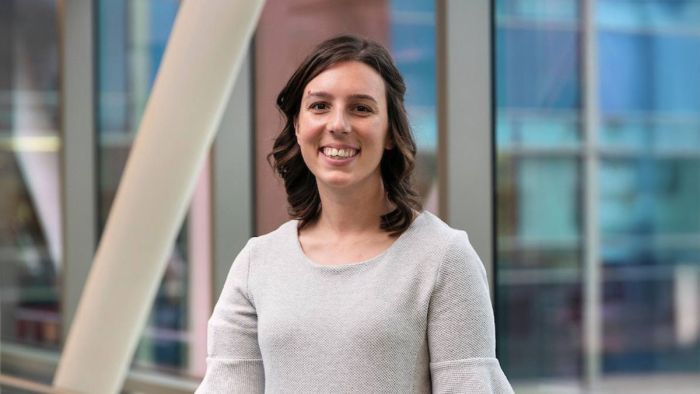The process of transitioning patients from pediatric to adult care requires a thoughtful plan--one that provides patients and their families with the skills and empowerment needed to navigate their well-being. This is especially true for patients who will not be able to live on their own; however, much of the literature surrounding this transition focuses on patients with a single common diagnosis or medically complex individuals who will live independently.
Tori Bahr, MD, Associate Medical Director of Pediatrics for Gillette Children's Complex Care and Transition Clinic and co-leader of our Health Care Transition Learning Collaborative, has studied how and when to best transition medically complex pediatric patients who will not be able to live independently. This population includes patients with complex diagnoses like severe cerebral palsy, muscular dystrophy, and chromosomal anomalies with global developmental delays and cognitive delays.
Transfer vs. Transition
A transfer of care denotes the movement of medical care of a patient from one provider to another. While each pediatric patient moving into adulthood will undoubtedly experience at least one transfer of care (from seeing a pediatrician to seeing an adult primary care provider), it is just one part of a holistic process known as transition of care--that is, transitioning a patient from the type of care they receive as children into the care they will receive as they reach adulthood. The more medically complex the patient is, the more layers this transition may have.
Building a Transition Team
Dr. Bahr says that transitioning care is much like a team sport, where the patient relies on multiple players to achieve a goal. An extensive transition team is required to meet the patient's needs, including resources from within and outside of the clinic. This team centers around the patient and their parents/guardians and extends to include several people, such as complex care providers, primary care providers, specialists, social workers, rehab therapies, therapeutic recreation specialists, the school special education team, nurse care managers, and psychologists. The team works together to help the patient plan for establishing resources and living a life with as much independence as possible. It is suggested that providers begin having these conversations with families and patients in their early teen years, around age 12-14.
An Age-by-Age Guide
Below is a chart to help providers conceptualize which topics should be addressed with patients as they age that will help them to make a smoother transition into adulthood.
| Age | Topics for discussion |
|---|---|
| 12-14 | Identify patient's abilities Work on developing age-appropriate healthcare skills such as knowing their condition and medications and why they have them |
| 14-16 | Build on healthcare navigation skills Gather information on age cut-offs for current care team |
| 16-18 | Address guardianship Provide education around the adult health system |
| 18-21 | Identify an adult PCP Transition specialists (ideally 1-2 every 6 months) |
| 21+ | Complete the transition of specialists Checking in and tracking success |
Tools for Allyship and Advocacy in Transitioning Care
There are myriad resources available to providers looking to support their patients undergoing the transition of care process.
Popular Media
Aftereffect is a podcast from WNYC Studios detailing the effects of policing on young people with autism or cognitive delays as they age into adulthood. Through the story of Arnaldo Rios Soto, a 26-year old nonverbal autistic man whose 2016 elopement from his group home ultimately escalated into the Miami Police Department shooting one of Soto's mental health therapists in the leg, the podcast explores the unique dangers faced by people with disabilities and their caregivers in interactions with law enforcement.
Web Resources
During the COVID-19 pandemic, Gillette's transitional care team worked with other providers and the state's department of health to develop guidelines and policy recommendations regarding patients with disabilities who require access to support during hospitalizations, an accommodation which may otherwise appear to violate a hospital or clinic's pandemic protocols regarding visitors. Updated in 2022, the document also contains information on the Minnesota Patients' Bill of Rights, as well as contact information for DHS's Office of Civil Rights and Minnesota's Department of Human Rights.
Project ECHO is a continuing education effort by Gillette Children's, the Minnesota Department of Health, and Got Transition to improve the transition of medically complex patients from pediatric to adult care. Gillette's own Dr. Tori Bahr serves as the medical advisor to Project ECHO.
To learn more about how to help your pediatric patients transition into adult care, contact Gillette Children's Transition of Care team.
Join Our Partners in Care Community!
Subscribe to Partners in Care Journal, a newsletter for medical professionals.
Subscribe Today Home Page
Home Page

